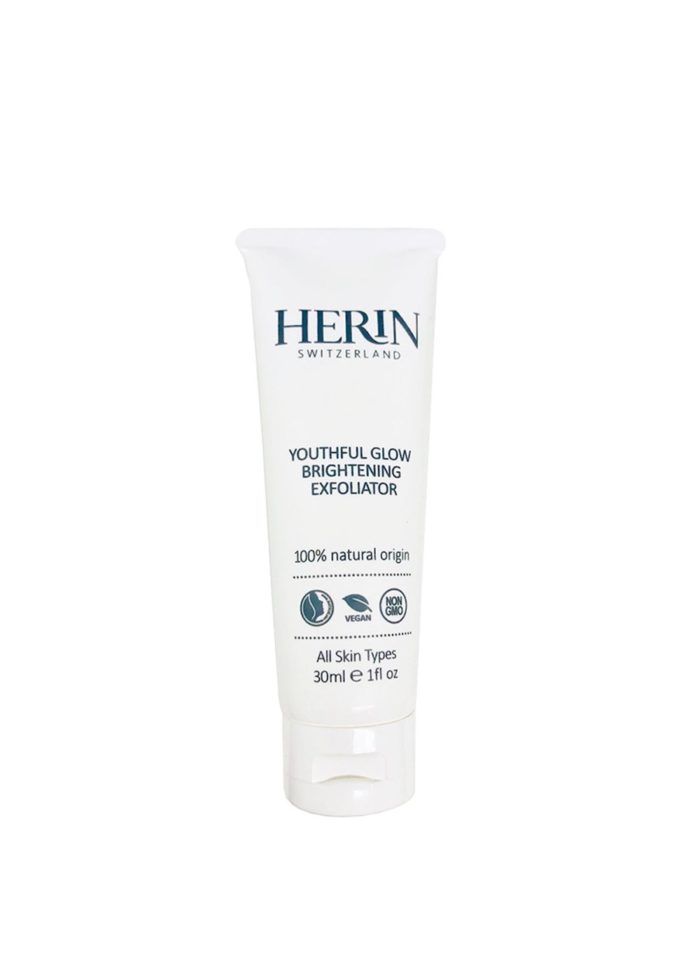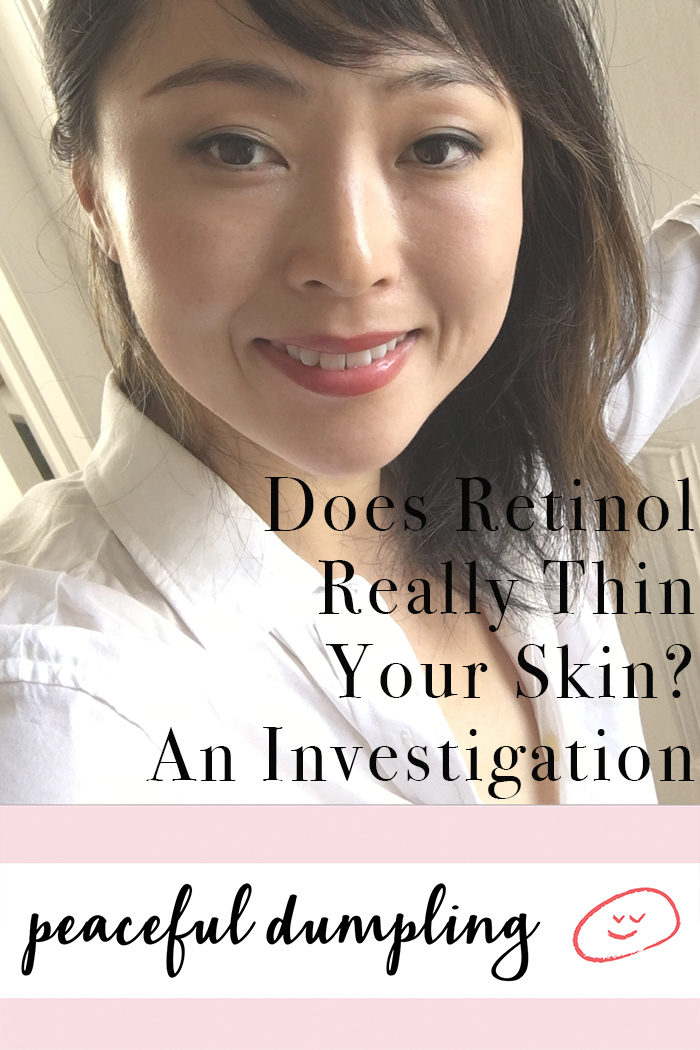A pure form of Vitamin A, Retinol is the most widely recommended and used anti-aging ingredient today. At PD HQ, Mary is a devotee of Paula’s Choice Retinol, having used it for years to both tame acne and maintain a youthful appearance. We often trade beauty secrets, so I decided to try a retinol–albeit from a different line. I was hoping it would lighten my hyperpigmentation and discoloration; unfortunately, the most obvious effect I noticed was the severe itching after putting it on 2 days in a row. Other than that discomfort, I neither noticed visible peeling nor improved tone and texture–and I abandoned ship a few weeks later.
Mary makes sure she never runs out of this retinol. Just sayin’.
While retinol is the current gold standard for anti-aging, it may simply not work as well for some skin types (as I experienced). In fact, there is an on-going debate on whether long-term use of retinol is even worse for aging, aka the “thinning theory.” Retinol works by exfoliating the top most, dead layer of skin and allowing fresh skin to emerge more quickly. As with any exfoliators, new skin does feel “thinner” than built-up skin–but most dermatologists dismiss the claim that retinol actually thins your epidermis.
However, some skin experts have raised the alarm citing the Hayflick limit, which is the number of times a normal human cell will divide before dying. In 1961, scientist Leonard Hayflick discovered that a normal human cell population will divide between 40 and 60 times before entering the senescence phase, aka cellular aging. This is because each time a cell undergoes mitosis, the telomeres on the ends of each chromosome shorten. Once telomere length reaches a threshold, the cell stops dividing completely–and the aging of cell populations brings on the overall physical aging you can see (ugh).
This is why some experts believe that retinol can actually speed up aging, by shortening the cell renewal cycle. Since human cells are not infinitely renewable, it then follows that at some point you will “run out” of new skin cells to take the place of old ones, right? [This reminds me of how elephant molars are replaced throughout its life; after its 6th and final molars are lost, it dies of starvation. :'( ]
But there are critics to this theory, as well. Hayflick limit only applies to differentiated cells, which are cells that have been developed and matured to their final function. Stem cells, on the other hand, are unaffected by the Hayflick limit. The dead layer of skin that retinol sloughs off is made of corneocytes, which are already designed to die and be removed once every 35 days or so. “Corneocytes are not affected by the Hayflick limit because they have already reached their regenerative limit. Once they are removed by exfoliation or slough off naturally, they are replaced by new corneocytes that have emerged from the epidermal stem cells, which are not affected by the Hayflick limit,” says microbiologist Susan Nathan. Meanwhile, retinol doesn’t affect the renewal “limit” of the all-important stem cells, which can regenerate continuously as long as you’re alive, hallelujah.
So if you’ve been using retinol and love its effects, by all means feel free to keep using it without the fear of “running out” of new skin cells. If you have sensitive skin, however, you can still reap the benefits of retinol through more gentle exfoliation options. My redness-prone skin didn’t love the itchy feeling of retinol, even every other night; and for me, skincare that feels uplifting and luxurious ends up being the most effective, because that’s what I end up using most liberally and consistently.

Fortunately, I did stumble upon Herin Beauty Youthful Glow Brightening Exfoliator, which is the hands-down best exfoliator I’ve ever used in my life. It has a creamy sunflower oil base, which is an Omega-6 oil that is super effective in dissolving congestion and purifying pores. It has rice bran and bamboo for manual exfoliation, and aloe for brightening. What I love is that it’s mild enough to be used every day and definitely doesn’t *feel* thinning–which is how I feel about any kind of chemical exfoliators, regardless of exact stem cell science. Herin line is also 100% natural, organic, and vegan, and donates proceeds to nonprofits dedicated to disadvantaged youths and refugees.
 #ThisIs31. No retinol works for me, tho. (For now, at least).
#ThisIs31. No retinol works for me, tho. (For now, at least).
What about you, dumplings? Do you swear by retinol? Or are you more into other kinds of exfoliators?
More in anti-aging: These Vegan Retinols Have Been Tested & Proven For Smooth, Glowing Skin
How I Banished My Lifelong Undereye Dark Circles & Bags
Get more like this—Subscribe to our daily inspirational newsletter for exclusive content!
__
Photo: Peaceful Dumpling






